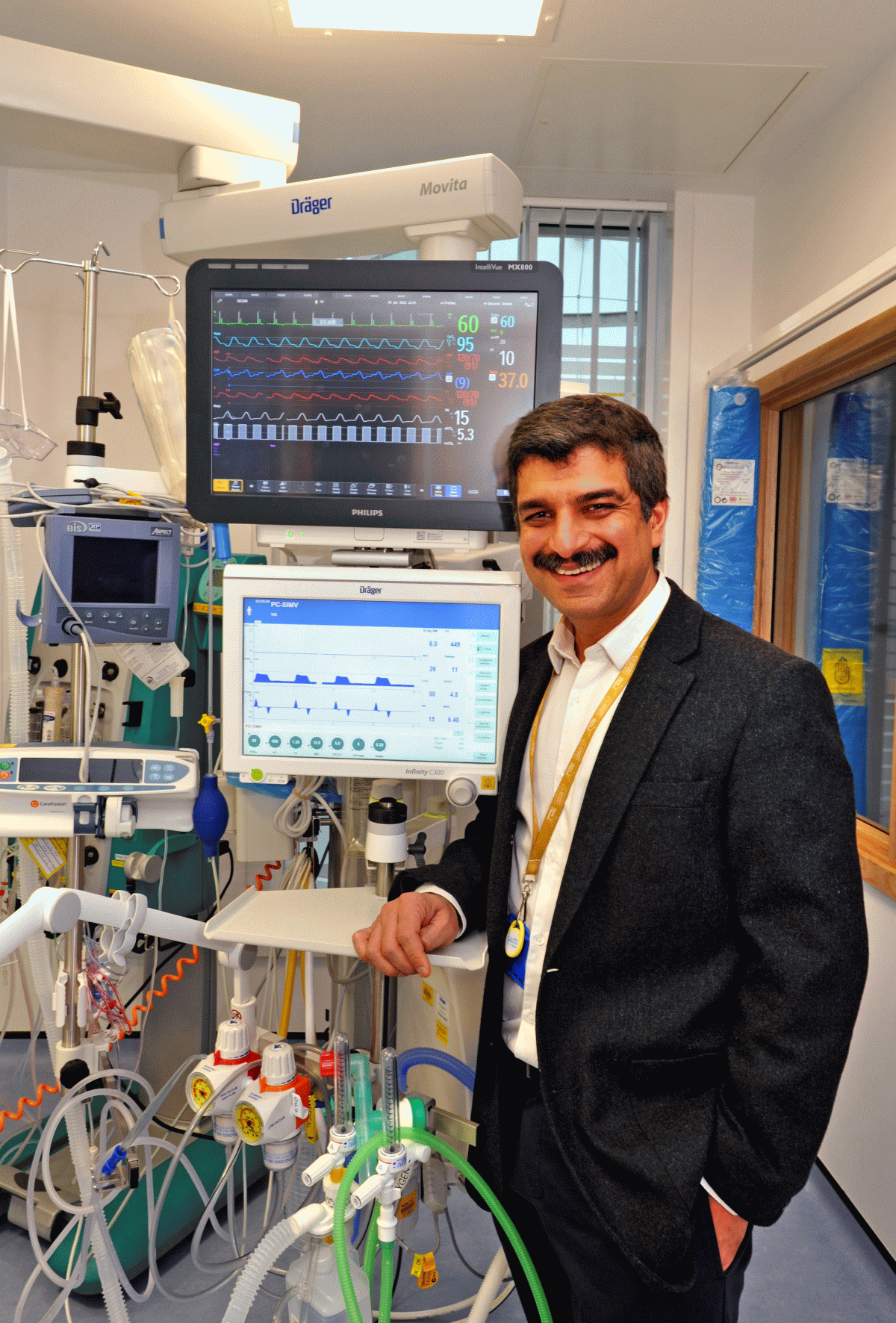Programmes to improve people’s health before surgery have mostly been exercise-based, with limited studies showing mixed results. The role of diet, for example, has been little studied, and the same is true of managing medicines and pre-existing conditions.
Dr Maria Pufulete in the School of Clinical Sciences’ Clinical Trials and Evaluation Unit (CTEU) led collaborative research to identify interventions that improve post-operative recovery and decrease the length of hospital stay. Such interventions may include dietary, exercise, psychological and physiological components. The project won funding from the Elizabeth Blackwell Institute (EBI) Research for Health Challenge scheme in response to a challenge from Dr Sanjoy Shah, Consultant in Intensive Care Medicine at University Hospitals Bristol NHS Foundation Trust (UHB), to develop a ‘prehabilitation’ programme for patients having major cancer surgery.
The prehabilitation programme initiated by Dr Shah and colleagues at the UHB aims to develop a multi-component intervention to be used before surgery in people undergoing major surgery for cancer. The programme reached a stage where there was a need for a scientific background for prehabilitation: identifying which interventions work best; describing the population of patients undergoing surgery, in terms of baseline characteristics and post-operative complications; describing pre-operative assessment practice across different hospitals; and discussing the concept of prehabilitation with local patient and public involvement (PPI) groups.
This is precisely where a collaboration with an interdisciplinary team at the University of Bristol was essential. Dr Pufulete worked with Professor Barney Reeves, Dr Jessica Harris and Dr Lucy Culliford at the CTEU, University of Bristol. Also on the team were academics from the Biomedical Research Unit (BRU) in Nutrition, Diet and Lifestyle at the School of Oral and Dental Sciences (Professor Andy Ness, Dr Charlotte Atkinson, Ms Rachel Perry, Ms Georgia Herbert and Dr Eileen Sutton) and from the Centre for Exercise, Nutrition and Health at the School of Policy Studies (Dr Anne Haase), all at the University of Bristol.
There were three stages to the research. First was an ambitious systematic review of all research studies in this area (some 139 randomized controlled trials) to help define the different parts of the intervention and how these should be delivered. This was conducted with the help of the National Institute for Health Research (NIHR) Collaboration for Leadership in Applied Health Research and Care West (CLAHRC West), who provided matched funding and vital research expertise. The team also looked at factors affecting behaviour change to establish why certain interventions work.
The second part involved local patient and public involvement (PPI) work to refine the intervention and ensure that it would be acceptable to cancer patients.
Third was collecting information on cancer patients who had undergone preoperative assessment and surgery at Bristol Royal Infirmary (cohort study) to build up a profile to help with programme design. Sponsors were UHB Research and Innovation.
Additional work included an online survey on how different hospitals assessed patients before surgery to help with setting up a programme across the UK. Two workshops on prehabilitation were also held to invite ideas and collaborations for future work.
Alongside the project, prehabilitation is now offered to UBH patients undergoing surgery for thoracic, ovarian and urological cancers, and is being extended to other cancers. The work has attracted the support of cancer charities, and a paper on the systematic review was published [1].
The team has applied for an NIHR Health Technology Assessment grant to test one prehabilitation intervention (inspiratory muscle training) that was shown to work by the systematic review. Dr Pufulete initiated a collaboration with the Southampton NIHR Respiratory BRU who have expertise in inspiratory muscle training. The deadline for this NIHR funding call was 9 February 2017 and the applicants are currently waiting to hear whether their initial application (expression of interest) was shortlisted for full application.
Dr Pufulete said: ‘We know that being unfit before a major operation increases the risk of death and complications and leads to longer hospital stays. This is becoming increasingly important as more operations are performed on older people, who may be less fit and have more than one disease’.
‘Currently, most interventions to improve recovery happen after surgery,’ Dr Shah said. We believe the weeks between the diagnosis of cancer, scheduling and having a definitive intervention including major surgery provides a real window of opportunity. This would to improve patients’ fitness and thus reduce the risks of the surgery and improve recovery and possibly contribute to more sustained improvement in lifestyle changes and quality of life. It would also enable the NHS to work more efficiently. We are offering prehabilitation to patients undergoing thoracic, upper gastrointestinal and ovarian cancer surgeries at the Bristol Royal Infirmary, and those undergoing urological cancer surgeries at the North Bristol Trust. We’re also undertaking a scoping exercise to offer it to patients undergoing major maxilla-facial cancer surgery at the BRI. We are now hoping that the results of our preliminary project will allow us to tailor the prehabilitation intervention more appropriately and test it in future research studies to determine how well it works.’

